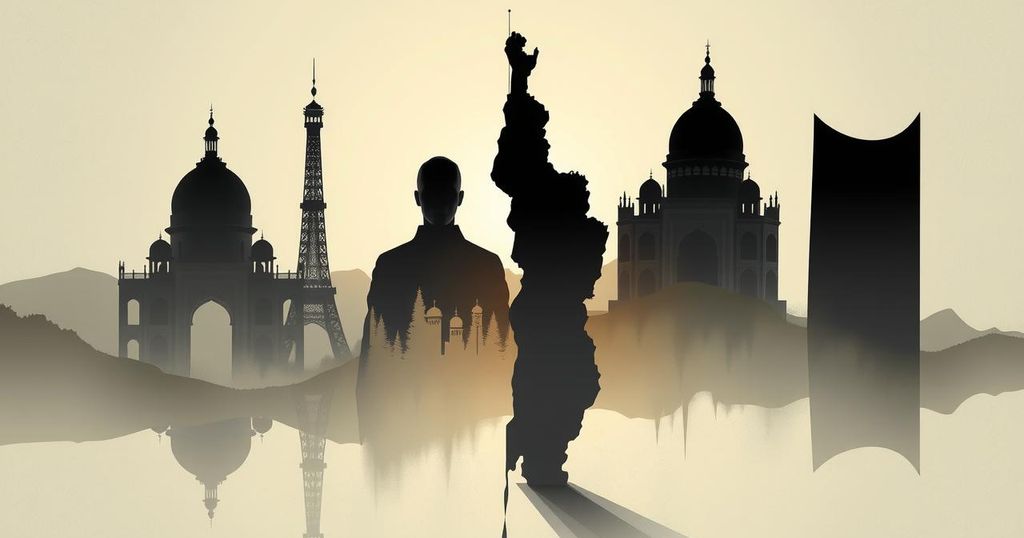Algeria and Tunisia’s decision to boycott the Arab Summit reflects their growing isolation and anti-Morocco stance. Algeria’s claims of exclusion from preparatory processes reveal its desperation amid regional change, while its hypocrisy on the Palestinian issue exposes conflicting agendas. The Arab League continues to support Morocco’s sovereignty despite Algeria’s divisive actions, indicating a shift in regional power dynamics.
Algerian President Abdelmadjid Tebboune and Tunisian President Kais Saied recently opted to boycott the emergency Arab Summit in Cairo on March 4, a move reflecting their increasing isolation within the Arab community and highlighting their anti-Morocco stance. The announcement came just two days prior to the summit, with Algeria’s government citing perceived irregularities in the preparatory process as the reason for Tebboune’s absence.
The Algerian presidency claimed that the summit’s preparations were monopolized by a small group of Arab states, which excluded others from the discussions on the Palestinian issue. A source from the presidency indicated that Tebboune was perturbed by this exclusionary process, suggesting that the Palestinian cause should unite all Arab nations, not serve as an agenda for a select few.
To represent Algeria at the summit, Tebboune appointed Foreign Minister Ahmed Attaf, while Tunisia quickly followed suit with President Saied designating Foreign Minister Mohamed Ali Nafti to lead their delegation. Tunisia reiterated its unwavering commitment to Palestinian rights, advocating for an independent state with Jerusalem as its capital.
Tebboune had previously touted hosting the Arab Summit in Algiers in November 2022, yet the event yielded little for Palestine and was significantly boycotted by major Arab leaders. Algeria’s presidency over the Arab League was ultimately short-lived, illustrating its diminishing influence in regional matters.
Algeria’s position exposes its ongoing divergence from the Arab consensus, leaning instead toward an Iranian-led “axis of resistance.” Following the recent war on Gaza, Algeria’s rhetoric against coordination meetings that involve Morocco underscores its desperation amid perceived marginalization in Arab geopolitics.
Gamal Sultan, editor-in-chief of Al-Masryoon, criticized Algeria’s claims about the exclusion from preparatory discussions as hypocritical antics. The social media reactions illustrated skepticism regarding the true motivations behind Algeria’s outrage about its lack of involvement.
Algeria’s rhetoric emphasizes its support for Palestine while simultaneously obstructing UN efforts to resolve the Western Sahara conflict and funding the separatist Polisario Front against Morocco. This contradiction highlights Algeria’s stances as disingenuous, as it champions Palestinian self-determination while undermining another Arab state.
The Gulf states’ upcoming meeting with Morocco, Jordan, Egypt, and Syria signifies Algeria’s waning status within the Arab League, largely due to its controversial foreign policies. Its refusal to align with the broader Arab consensus raises suspicion among member states and isolates it.
Moreover, Tebboune’s earlier criticism of Morocco’s normalization with Israel starkly contrasts with his recent suggestion of establishing relations contingent on Palestinian statehood. Algeria’s substantial trade with Israel, despite its verbal opposition, intensifies accusations of hypocrisy against Tebboune and his administration.
Algeria’s ambition to form a “Maghreb Union” intentionally disregarding Morocco illustrates its ongoing regional isolation. Despite asserting that all are welcome, Algeria’s actions tell a different story, demonstrating its attempts to assert dominance while excluding significant players in North Africa.
Tunisia’s recent diplomatic distancing from Algeria’s agenda indicates a growing skepticism regarding Algeria’s motives. Both Libya and Tunisia have rebuked Algeria’s separatist tendencies and indicate that any genuine initiative must involve all regional countries, thereby challenging Algeria’s divisive approaches.
In summary, the Arab League continues to denounce Algeria’s attempts to undermine Morocco’s sovereignty. While Algeria’s leaders strive to mask their isolation through hollow rhetoric about Palestinian solidarity, their actions reveal an evident decline in influence as Arab nations rally around shared goals and unity amid increasing tensions in the region.
In conclusion, the decisions by Algeria and Tunisia to boycott the Arab Summit illustrate their growing isolation and underline their anti-Morocco stance. The hypocritical positions of both leaders, particularly in relation to their support for Palestine and simultaneous obstruction of Arab unity, further expose their dwindling influence in regional affairs. As they retreat into diplomatic obscurity, the Arab League’s unwavering support for Morocco emphasizes a shift in the balance of power among Arab states.
Original Source: www.moroccoworldnews.com




